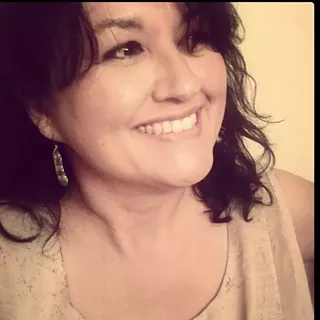A couple of years ago, Leza Carter started talking to local folks about creating a community farm to educate the public—especially children—on making good food choices. Almost a year ago, Carter's dream came true with the creation of Tucson Village Farm at the UA Campus Farm, off Campbell Avenue. On Monday, Jan. 17, the farm will have a service day from 9 a.m. to noon, and on Saturday, Feb. 5, there will be is a family workshop on creating a kid-friendly garden. To register or for more information, call the Pima County Cooperative Extension office at 626-5161, or visit www.tucsonvillagefarm.org.
Where did you get the idea for the farm?
For four years, I worked for the Pascua Yaqui tribe, first at Lawrence Intermediate School. We built up quite an impressive garden program. While I was there, we worked with hundreds of kids, many of whom started the day with Doritos and Coke, but not once did I have a child refuse to eat something they grew. ... Kids don't know these foods in their natural form. After that, I took time off to raise my own kids, and I started to think about a new urban model where having an urban farm in a central location, sustainably managed and staffed over the long term, could be a resource for all schools in Tucson.
How does that work?
Schools could come. ... Kids could come back with their parents. Young people could have continuous access. I felt like this was a new urban model for our city, and Tucson was a great place for it. There's lots of vacant land. It took a couple of years ... trying to find the right piece of land.
Was that a challenge?
Sourcing the right piece of land was extremely challenging, but the positive feedback I continued to get from the community kept me going. ... In October 2009, I had a meeting with the ag-farm director at the UA, and he invited me to start the farm there. We partnered immediately with the (Pima County Cooperative) Extension program. It has been nonstop.
What was your first project?
We partnered with Sky Island high school early on. The high school students came every week in the spring semester and worked on special projects with us. It continues to be a school we work with, although we ran into some transportation difficulties that we are about to overcome: We just got a 12-passanger van given to us.
What other youth projects do you work on?
Our Growing Forward program is our K-5 state standardized ag-education program. A group of 50 to 70 kids come out from a school, and we put them into small groups and move them through stations at the farm. Every kid gets their hands dirty, and every kid does farm chores ... and we give them a nutritious snack.
What's at the Tucson Village Farm?
We have a little over an acre. We have 1,700 square feet under cultivation, and we will be expanding this spring. We farm in a low-water-usage method. We use sunken beds and buried drip irrigation, and we always amend soil, so we mulch heavily in order to retain moisture. It cuts down to one-third to one-half of water that might be used conventionally. But we are also small.
You guys have a summer camp, right?
We ran a pilot project last June, a week of summer camp. The kids had so much fun. ... We say we are a seed-to-table program. We try to include the whole cycle, especially at our farm camp. So, 34 kids cooked all of their own food for the whole week, but they also started the day out on the farm when it was still cool and did farm chores. We also had live-animal demonstrations and had a beekeeper come in with a live hive.
What are your goals for next year?
Get more schools out to the farm. We've been scheduling schools once a week. We target low-income schools, but we want to get everyone. We need transportation grants that pay for buses at schools that don't have enough parents to carpool. ... We want to raise money to construct a certified kitchen that community members can come in and use. If you grow your own cucumbers, and you want to make pickles to sell, you have to make those in a certified kitchen.
Do you feel you timed this just right?
I do, absolutely. I feel there was such a need for a project like this to help people learn about making wise food choices. ... People are hungry for that knowledge.



